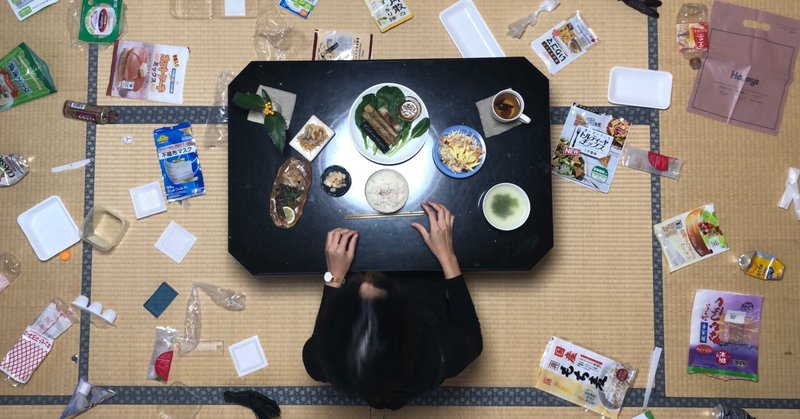
My Food Philosophy: A Celebration of Ingredients and Connection
Food is more than sustenance; it's a window into culture, a source of creativity, and a way to connect with ourselves and others. Here are the principles that guide my relationship with food:
Respecting Every Ingredient: Waste Not, Want Not
I try not to purchase and bring home too much food, but I confess, I get tempted by new discoveries at the local market or shop.
I aim to finish all food I cook while it's still good enough, minimizing waste. However, life gets busy, and sometimes I miss meals or forget things in the microwave (we've all been there!).
I utilize even dry ingredients like noodles, shiitake, kombu, and pepper past their expiration dates as long as they're stored properly. This practice led me to question how manufacturers determine these dates.
Appreciating the Whole: Even the peel gets used! In Vietnam, we often peel carrots, potatoes, daikon, etc., believing it's difficult to wash them thoroughly otherwise. But why waste the good stuff? Carrot skins hold valuable minerals and vitamins. Daikon rinds contribute flavor to soup stock when simmered with other vegetables. Cabbage outer leaves add texture to pickles, and orange peels can be transformed into delicious candied snacks or an invigorating bath soak. Ultimately, all scraps can become compost!
Finding Beauty in Imperfection:
Beyond Aesthetics: My mother instilled in me that misshapen vegetables, often overlooked, can be more flavorful. Imperfectly shaped produce likely grew naturally, without chemical enhancements.
Mindful Consumption:
Hara Hachi Bu (腹八分目): Embracing the Japanese principle of "eat until you're 80% full" promotes healthy moderation. Overeating can lead to disinterest in a dish. My father often reminded us to enjoy the deliciousness so we'd crave it again later.
Adapting to Ingredients: The freshest sweet corn is best savored raw. But as it matures, I adapt by using it in soups or stir-fries.
Food as a Cultural Lens: To truly understand a culture, visit local markets and observe family cooking. Food speaks volumes about traditions and preferences.
Creating Diversity on the Plate - A Balanced Ecosystem:
While a table full of various dishes is delightful, a simpler approach with balanced diversity within each dish works too, especially in our fast-paced lives.
Diversity can be expressed through colors, flavors, and textures. My salads are a vibrant mix of green leaves, orange carrots, purple cabbage, red tomatoes, and kumquats for color; pepper, herbs, and potato chips for flavor and texture. This ensures a well-rounded intake of nutrients.
Sustainable Practices in the Kitchen:
Minimizing Tools: I believe simplicity is key. Instead of relying on specialized gadgets, I train myself to find creative substitutions. Believe me, we can have our heart satisfied without gadgets.
Reusability: Japanese packaging often comes in sturdy, reusable zip-lock bags that I repurpose for dry ingredients or fridge storage. I even upcycle cardboard into trash bins, old clothes into dustcloth. These measures also help reduce waste.
Foods and souls:
The Comfort of Home Cooking: Home-cooked meals offer relaxation and a sense of self-care. Cooking is a form of meditation for me. While in Hakodate, the desire for a meal prepared by my own hands sometimes drove me to rush home after a yoga-ballet class (haha). On my birthday a few years back, I cooked myself a colorful pasta and salad, and the simple act of creation brought immense satisfaction. Similarly, the warmth of a homemade miso soup after a month of traveling Europe and settling into a new home was incredibly comforting. This experience solidified my love for home-cooked meals.
And have you ever felt even happier when seeing your family or friends enjoying the meal so much? I’m always having this magical feeling that the dishes taste twice delicious. It helps me a lot especially when my mood is down. ^^
Cooking Together: Bonding Through Food: Cooking together fosters connection. It's an activity that encourages teamwork, communication, and care for one another. This meaningful experience can be shared with guests as well! Cooking can be an icebreaker leading to deep conversations. Every step in the kitchen becomes a rhythm, and conversation flows like the melody in a song. Communities thrive on these moments of connection, similar to the role fire has played throughout history. Cooking together is important to me, but it wasn't until I learned about the Japanese book "Share Dining" and its exploration of how shared meals build connections that I truly understood its profound impact. The book also mentions the "Restaurant of Mistaken Orders" project, which I found fascinating.
These are the values I strive to embody in my relationship with food. Each principle reflects a desire to respect ingredients, cook mindfully, and connect with myself and others through food.
この記事が気に入ったらサポートをしてみませんか?
